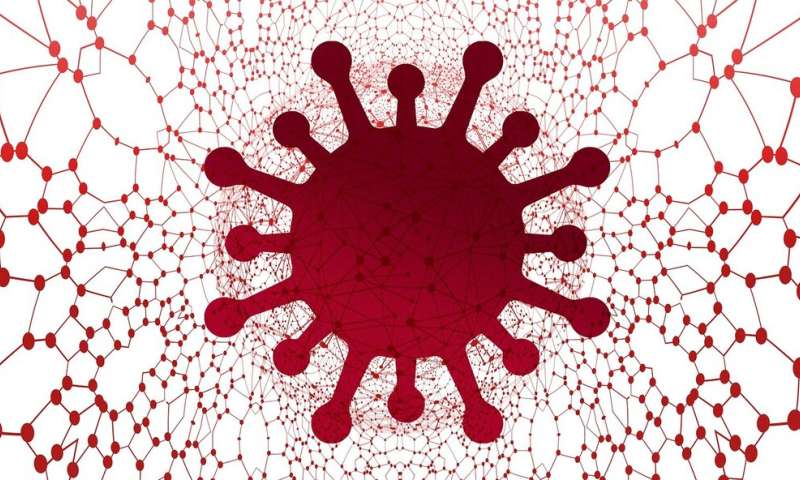
With news of a COVID-19 vaccine on the horizon, we have hope of a way to curb a virus that has had a devastating impact on so many people. But we need to be considering a much longer-term threat to our health—drug-resistant infections.
Currently, the global loss of life caused by antibiotic resistance is estimated at over 700,000 deaths per annum. This is predicted to climb exponentially to over 10 million deaths per annum by the year 2050 if no action is taken.
It’s not an exaggeration to say that antimicrobials and antibiotics will soon become useless if we keep considering them as a ‘miracle pill’, meaning sepsis, pneumonia and other lethal bacterial infections could become untreatable. If we don’t raise awareness and act quickly, we could be facing a much bigger threat to human health, long after the pandemic has passed.
The first thing to note is that viruses and bacteria are different—COVID-19 is caused by a virus (SARS-CoV-2), while infections like sepsis are bacterial. Antibiotics can only treat bacterial infections, not viruses.
The statistics
COVID-19 is highly contagious and when a patient is suffering from the infection, separate opportunistic bacteria can enter into the equation. This bacterial co-infection, along with secondary infection, are additional factors causing illness and mortality.
From 24 separate studies that were recently conducted, figures have shown that 72% of hospital inpatients testing positive for COVID-19 were given antibiotics as a preventive measure to treat a suspected bacterial infection. However, only 17.8% of COVID-19 patients were confirmed as having co-infection or developed secondary infections like bacterial pneumonia. This is a worrying fact, as many of these patients might have never had a bacterial infection, but they were still treated with antibiotics. Clinicians are forced to do this in the hope of preventing patient death from co/secondary infections because they are unable to diagnose an infection in a more efficient way.
Nevertheless, the education regarding antibiotic awareness in both the community and hospital environment (where the majority of human broad-spectrum antibiotics are prescribed) needs to be improved.
Why are some bacteria resistant to antimicrobials?
It is an entirely natural process for bacteria to evolve resistance to chemicals that target it—they have been doing it for billions of years. However, as modern medicine has progressed, bacteria have become more exposed to newly developed antibiotics and survived. The surviving bacteria then pass down antibiotic resistant genes to their offspring. Our misplaced reliance and overuse of antibiotics has compounded the problem, making bacteria even more robust.
Knowing how resistant bacteria are evolving is not the only way to curb the rising trend of superbugs. Following basic hygiene practices, like regularly washing hands/surfaces, using sanitiser when hand washing is not available, preventing cross-contamination between foods/surfaces, and sneezing onto the inner elbow, rather than onto hands, are just some of the ways to help prevent the transmission of any microbial infection. Obtaining clean, safe water is also a priority—microbes can spread rapidly in developing regions that do not have access to clean water and good sanitation.
The funding challenge
Another big challenge faced by scientists is obtaining the funding needed to combat antibiotic resistance. The field of antibiotic research and development is grossly underfunded. While some private companies within the industry understand this issue and invest money into an “alliance” they have created, the public sector is falling behind drastically. Data from 2018 has shown that the total European public sector investment fund for antibiotic development totalled roughly €430million annually—this is less money than the annual income made by the top 10 footballers in the world combined.
Governments must take steps to invest more time, funding, and effort into all aspects of this global crisis. A much-needed increase in public spending towards the antibiotic development pipeline would relate to an increase in output by scientists. The public also needs to be confident that their money is going towards combatting an issue that will not only affect us in our lifetime but have massive consequences for our children’s lifetime thereafter.
The future
As antibiotics play a considerable part in healthcare, the ramifications if nothing is done are unthinkable. A simple scratch could kill a child, cancer treatments could kill a patient, and childbirth could kill an expectant mother and her baby.
Scientists and clinicians need to start educating a broader demographic to understand global and personal impacts caused by antibiotic resistance. COVID-19 has demonstrated how vulnerable the human race is to an infectious agent. The pandemic has been a massive struggle for all, putting people and services under enormous pressure. However, to prevent this sort of scenario from becoming a regular occurrence with even greater loss of life, the global community must act now.
Source: Read Full Article
